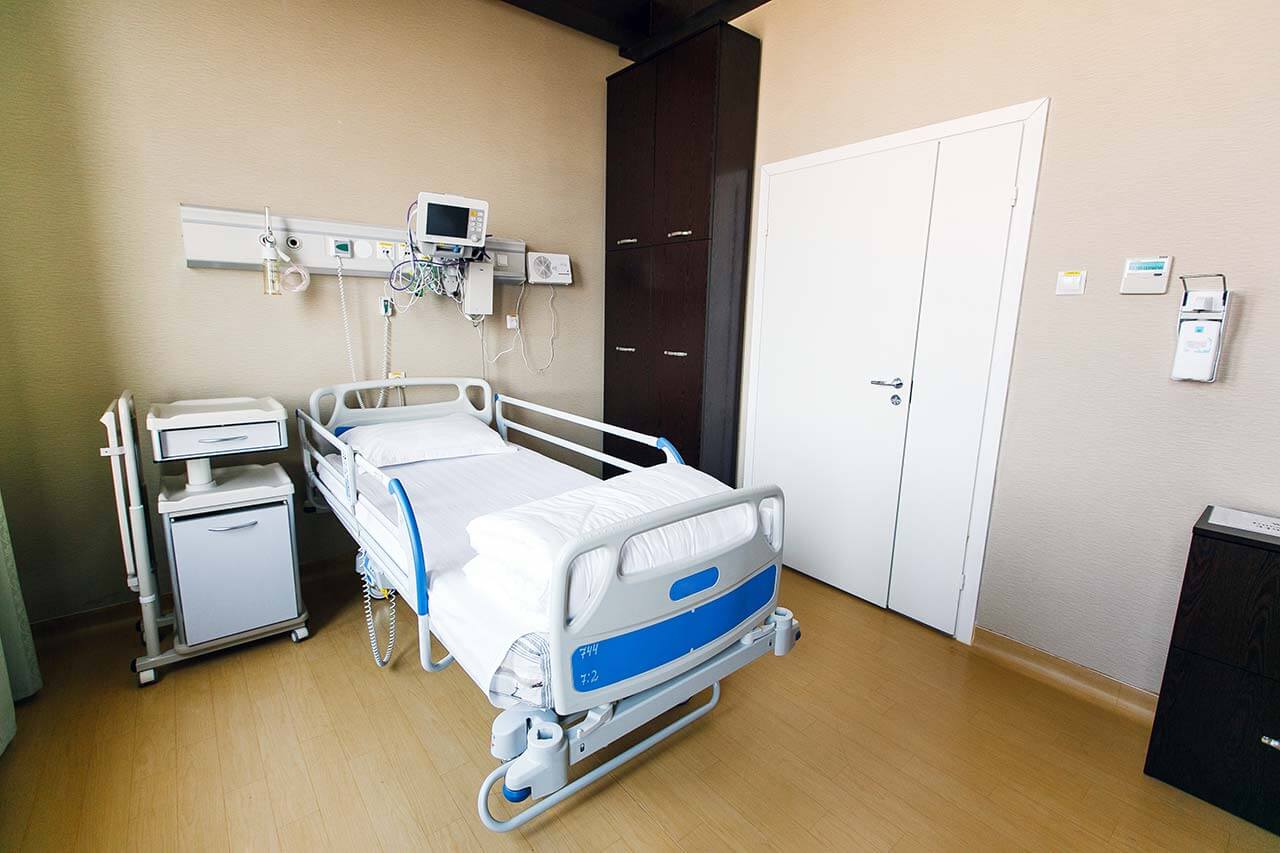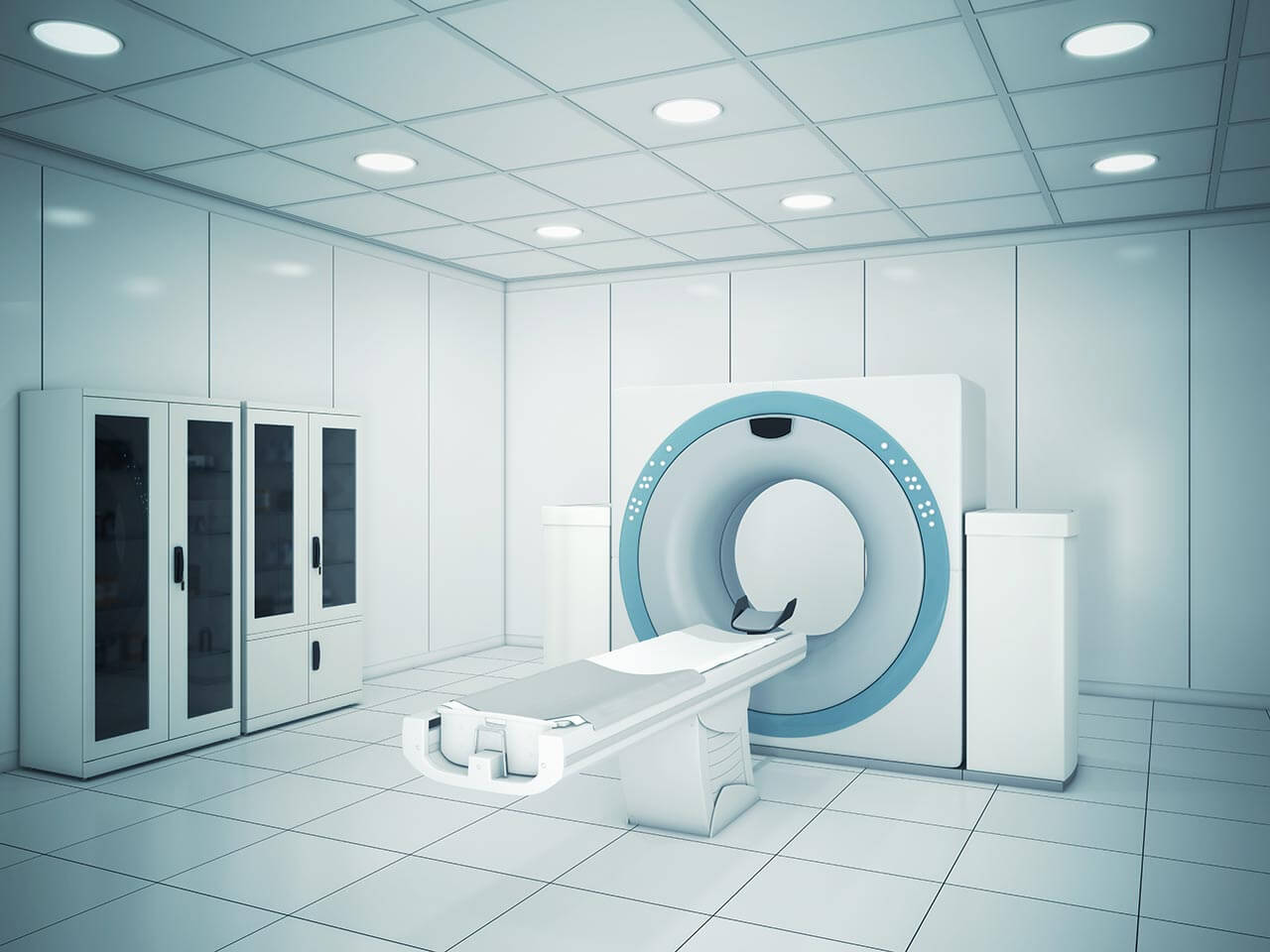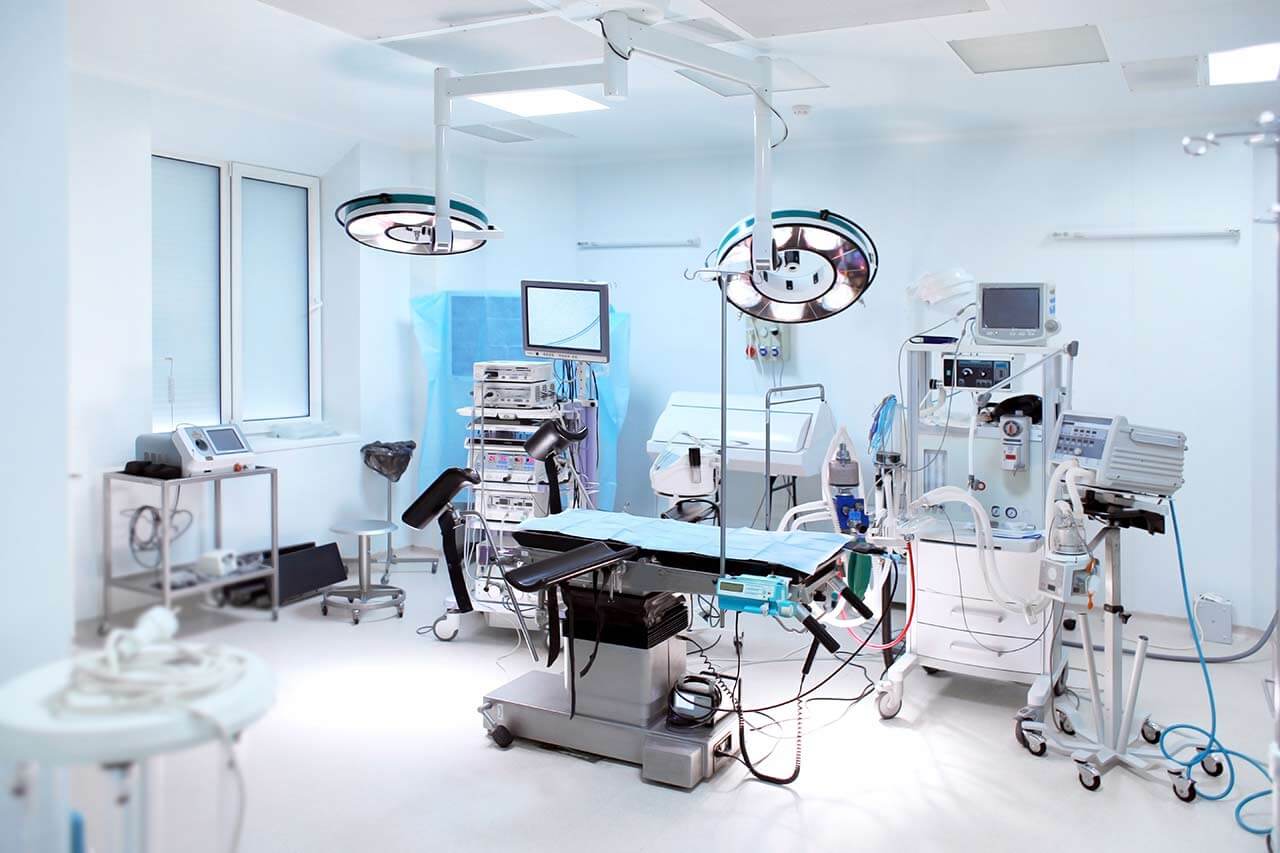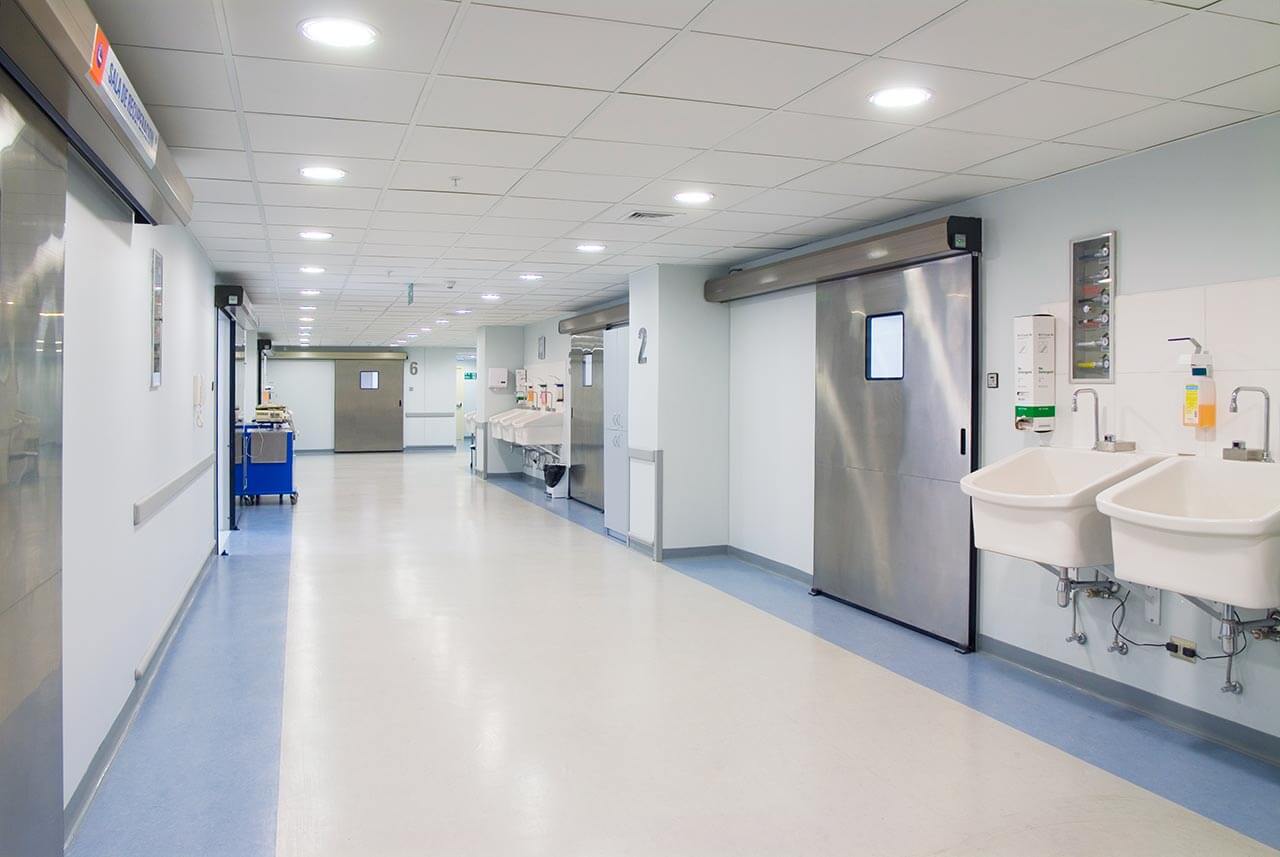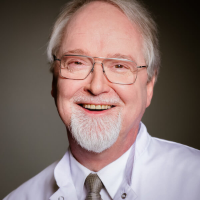
About the Department of Cardiology, Nephrology and Pulmonology at Alfried Krupp Hospital in Essen-Ruettenscheid
According to the Focus magazine, the Department of Cardiology, Nephrology and Pulmonology at the Alfried Krupp Hospital in Essen-Ruettenscheid ranks among the best medical facilities in Germany!
The department offers all the possibilities of modern medicine for prevention, diagnostics and treatment of diseases of the cardiovascular system, lungs and kidneys. The primary focus of the department's clinical activities is on drug therapy and interventional treatment of cardiovascular pathologies. The medical facility is certified by the German Cardiac Society (DGK) as a heart failure unit and a chest pain unit. A special role is given to the treatment of heart rhythm disturbances (arrhythmias). The main task of the department's pulmonologists is to detect and treat lung diseases. The department's special offer in the field of pulmonology is extracorporeal membrane oxygenation (ECMO) in patients with severe acute respiratory failure. In addition, the medical facility has all the necessary technical resources to detect and treat kidney diseases, including kidney lesions caused by arterial hypertension. The department's nephrologists carry out treatment using pharmacotherapy, extracorporeal techniques and renal replacement therapy.
The department is headed by Prof. Dr. med. Thomas Budde. According to the Focus magazine, the professor ranks among the best cardiologists in Germany. Prof. Budde has been in clinical practice for over 25 years, which testifies to his high professionalism.
The department has all the necessary structural units to provide comprehensive and effective medical care to patients with cardiovascular pathologies. There is an outpatient clinic, a day clinic, a chest pain unit, a heart failure unit, an intensive care unit, and an intermediate care station. Diagnostics and treatment are carried out in accordance with the very latest guidelines from the German Cardiac Society (DGK), the European Society of Cardiology (ESC), the American Heart Association (AHA) and the American College of Cardiology (ACC). The department's specialists successfully carry out non-invasive and invasive treatment of acute and chronic forms of coronary heart disease, structural heart valve diseases, cardiomyopathies and heart failure. Whenever possible, the team of cardiologists uses only pharmacotherapy, but if it does not give the desired result, doctors resort to catheter-based interventions. Such interventional procedures allow achieving good therapeutic results, while eliminating the need for traumatic surgery with thoracotomy. The department's doctors most often perform percutaneous transluminal coronary angioplasty, implantation of drug-eluting stents for coronary artery stenoses and occlusions, interventional closure of atrial septal defects using a special occluder, cardiac resynchronization therapy, etc.
An important role in the clinical practice of the medical facility is assigned to the detection and treatment of arrhythmias. The causes of cardiac arrhythmias can be quite varied and range from congenital or acquired pathologies of the cardiac conduction system to arterial hypertension and thyroid diseases. The department's doctors specializing in electrophysiology have a huge arsenal of techniques to effectively detect cardiac arrhythmias, determine their type and select the optimal treatment tactics. It should be noted that the department has an innovative CARTO system, which is used to create a 3D model of the heart using a navigation system. CT and MRI scans can also be imported into the CARTO system, thanks to which the attending physician receives comprehensive clinical information. In most cases, doctors of the medical facility successfully cure arrhythmias with medications and/or catheter ablation. The department's specialists strive to rapidly implement innovations into clinical practice, which is confirmed by the fact that in April 2021 the medical facility became the fifth in the world in the treatment of atrial fibrillation with a revolutionary novel method called pulsed-field ablation (PFA). The therapeutic procedure is a modern alternative to all available types of ablation. The essence of the method is that short pulsating current impulses target only those cardiac tissues that provoke an accelerated irregular atrial rhythm. The innovative type of ablation therapy is safer than others and allows for positive dynamics in the shortest possible time.
The team of the department's highly qualified pulmonologists specializes in the treatment of lung diseases. Diagnostic options in this field include pulmonary function tests (spirometry, body plethysmography and diffusion capacity testing), flexible bronchoscopy, diagnostic bronchoalveolar lavage, sampling for histological and cytological tests, etc. The treatment is most often based on the intake of pills. The specialists also have the necessary equipment and professional skills for therapeutic bronchoalveolar lavage (for example, for interstitial lung disease), bronchoscopic hemostasis, argon plasma coagulation, drainage for pleurisy and pleural empyema, pleurodesis, etc. In acute pulmonary insufficiency, classical mechanical ventilation and a modern procedure for extracorporeal membrane oxygenation (ECMO) are performed. The last option for maintaining lung function allows maximizing the preservation of lung tissue and practically eliminates restrictions in the work of the lungs after the completion of the course of therapy.
Nephrology is an integral part of the clinical activities of the department's doctors – the department is certified by the German Society of Nephrology (DGfN). The key focus is on the management of acute and chronic kidney failure. The specialists of the medical facility carry out all modern types of renal replacement therapy (dialysis), including hemodialysis, peritoneal dialysis, hemodiafiltration, continuous venovenous hemofiltration, and also provide comprehensive patient care before and after kidney transplant. In addition, the tasks of nephrologists include plasmapheresis – a procedure for removing toxic substances from the blood.
The department's range of medical services includes the following options:
- Cardiology
- Therapeutic cardiac catheterization
- Percutaneous transluminal coronary angioplasty for the treatment of coronary artery stenosis
- Implantation of drug-eluting stents for coronary artery stenoses and occlusions
- Recanalization for chronic coronary artery occlusions, including with the use of rotablation
- Implantation of stents for stenosis of the main arteries and complete revascularization for cardiogenic shock and myocardial infarction
- Percutaneous implantation of an assistive device Impella 2,5 for left ventricle in high-risk coronary interventions and during the treatment of acute cardiogenic shock
- Interventional closure of atrial septal defects with a special occluder
- Interventional closure of the left atrial appendage with a special occluder
- Interventional treatment of mitral valve insufficiency using the MitraClip technique
- Stent implantation for renal artery stenosis
- Catheter ablation for the treatment of arrhythmias
- Implantation of pacemakers and defibrillators, as well as further monitoring of the functioning of devices
- Implantation of devices for cardiac resynchronization therapy
- Emergency medical care for acute coronary syndrome (around the clock)
- Therapeutic cardiac catheterization
- Pulmonology
- Therapeutic bronchoalveolar lavage
- Bronchoscopic hemostasis
- Argon plasma coagulation
- Drainage for pleurisy and pleural empyema
- Pleurodesis
- Classical artificial ventilation
- Extracorporeal membrane oxygenation (ECMO)
- Nephrology
- Pharmacotherapy
- Renal replacement therapy (dialysis)
- Hemodialysis
- Peritoneal dialysis
- Hemodiafiltration
- Continuous venovenous hemofiltration
- Plasmapheresis (procedure for removing toxic substances from the blood)
- Patient care before and after kidney transplant
- Other medical services
Curriculum vitae
Prof. Dr. med. Thomas Budde heads the Department of Cardiology, Nephrology and Pulmonology at the Alfried Krupp Hospital in Essen-Ruettenscheid. The specialist is rightfully proud of the status of one of the leading cardiologists in Germany, specializing in invasive and non-invasive diagnostics, as well as in the treatment of cardiovascular diseases. According to the Focus magazine, he ranks among the best cardiologists in the country. Prof. Budde has been in clinical practice for over 25 years, so he can be deservedly proud of his rich clinical experience. The doctor is certified by the German Cardiac Society (DGK) and the European Society of Cardiology (ESC). He is distinguished by his particular professional skills in the field of interventional cardiology and cardiac electrophysiology. Dr. Thomas Budde also has additional qualifications in intensive care.
Photo of the doctor: (c) Alfried Krupp Krankenhaus
